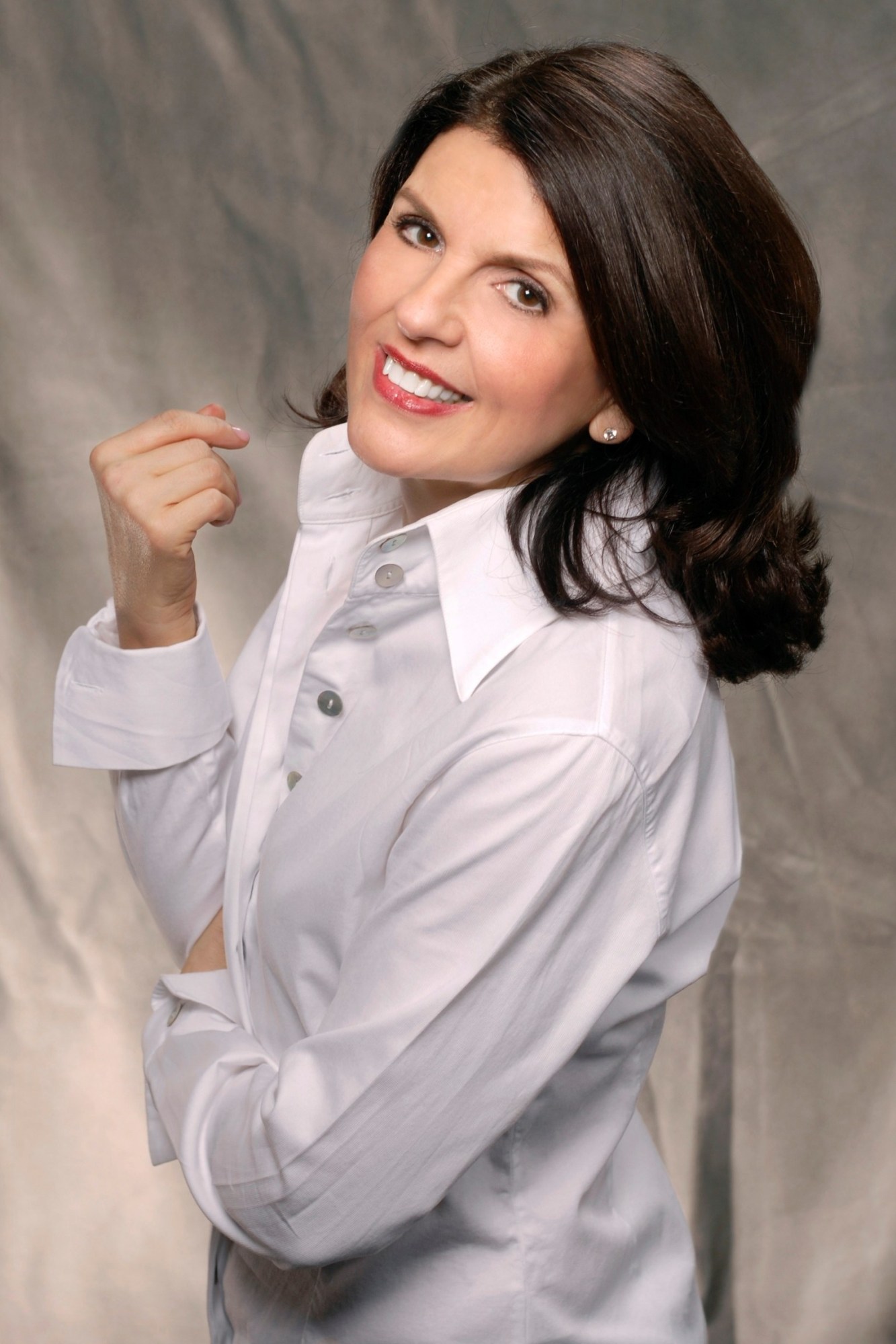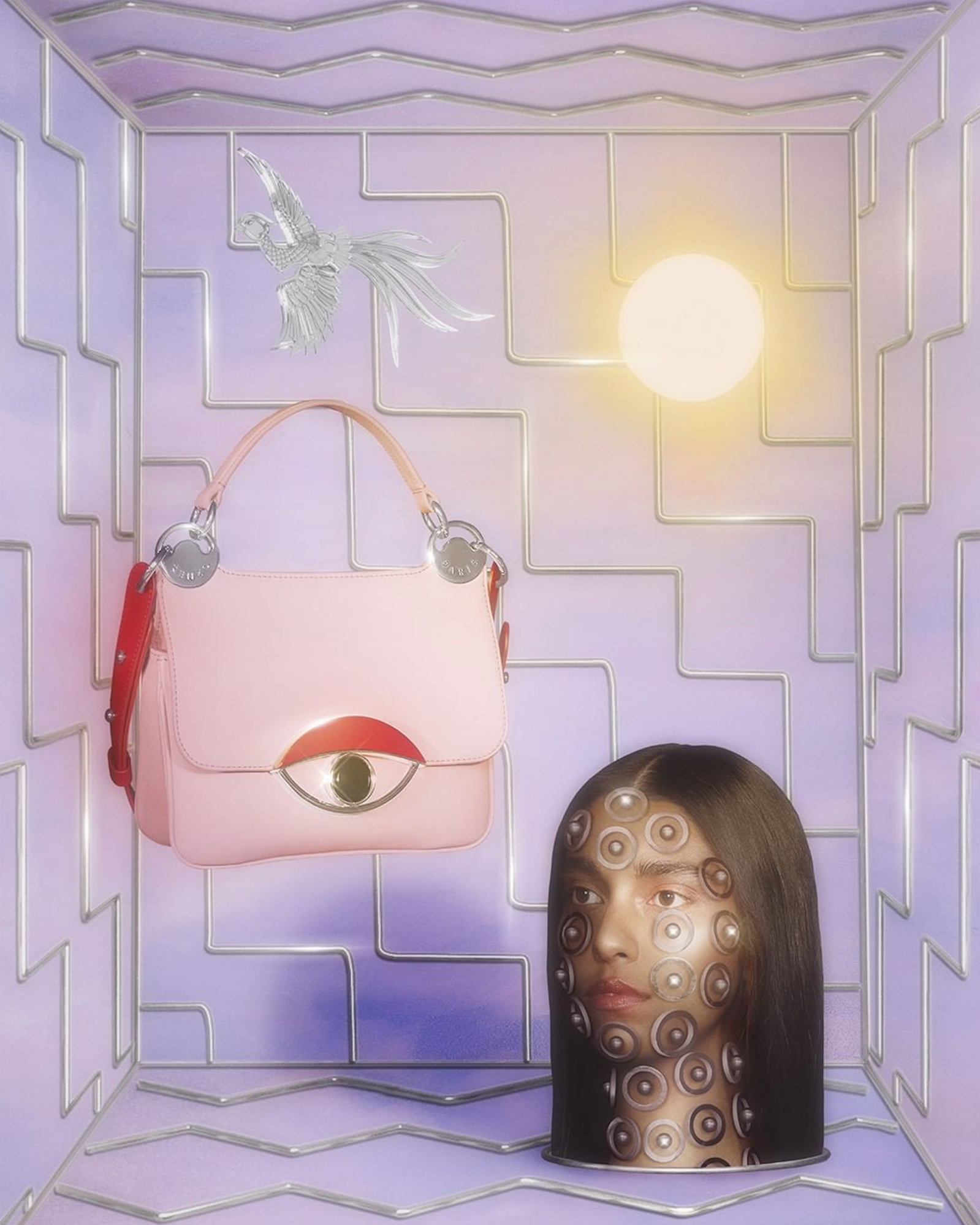This article originally appeared on i-D France
Since 1995, celebrity astrologer Susan Miller has been offering up her precious insight to devoted followers across a multitude of platforms — from TV, to books, to her very own app. Most recently she collaborated with Kenzo on the release of their new bag, TALI. The fashion house tasked Miller with advising their customers on which TALI bag suits them best, according to their sign — via this app. With the stars aligned, we took the opportunity to chat with Susan Miller about fashion, astrology and almost everything in between.
Hi Susan! First things first, how does one become an astrologer?
For me, it all began with a chronic illness. I was born with a problem with my left leg and since I was little it’s caused me terrible pain. At times I’d spend whole weeks in bed. I had an operation at 14 and spent a year in the hospital.
My mother was studying astrology at the time, but didn’t want to teach me. But I really wanted to find out the reason for my illness, to understand why I was suffering. So I decided to ask the stars if one day I’d be able to walk correctly. I sent my request to a well-known astrologist who had a column in a magazine, and one day I got a reply. When my mother discovered that I had been in touch with him she realised I was seriously into astrology, so she finally agreed to share her gift with me.
Has the field of astrology changed a lot since you started?
The internet has really revolutionised astrology — for better or worse. What’s nice is that today, astrology is accessible to most of us. Think about the fact that in 2,500 BC — which we consider the birth year of astrology as we know it — the wisdom of the stars was only accessible to kings.
But then again, democratisation has its limits. On the internet, people have access to dozens of astral readings and it’s impossible to tell the fakes from the real ones. Exactly what rhetoric do you choose to believe? Who can really speak to the stars legitimately? Being an astrologer isn’t just about being gifted with sensitivity; you also have to have critical thinking, you have to be good at math and be able to map out the whole sky.

People are very into astrology and spirituality these days. How do you explain that?
The younger generations are very educated, but also more sensitive than previous ones. If you ask me, they are going through an extremely rough phase of disillusionment. Everything their parents taught them has turned out to be untrue, or unattainable. Our societies have deprived them of the promises made to them. Millennials share an anger that’s completely justified. It’s only logical that they’d start looking for answers elsewhere.
It’s also interesting to note the number of men who consult astrologists today. Men represent about 40% of my clientele. This new male passion for the stars reveals a redefinition of man’s place in the universe — a kind of quest. Among my male clients, there are quite a few businessmen. It goes to show that reason doesn’t always prevail over feeling — even among demographics we would never expect.
Do you think younger generations are more intuitive than older generations?
Yes, and I’d advise them to pay attention to their intuition. For a long time, society functioned with two left brains. It’s time to reactivate the right side of our brains and start questioning the world around us. Younger generations have a certain irreverence, which I think is only healthy. Maybe they understand their individuality a little better. Did you know that the natal chart of an individual will never repeat again in all of humanity’s existence? As far as the stars are concerned, there will never be anyone like you. Even twins aren’t born under the same star. So you can’t listen to other people’s ideas about you. Each individual has their own star.
Are there questions you can’t answer?
Yes, lots! During the last American elections, I was invited to speak on lots of talk shows. I was always surprised when they asked me point blank: “Who will be the next president?” No idea! That depends on the votes. That’s all I could tell them.
Recently you worked with Kenzo on their TALI series of handbags. Is there a space where fashion and astrology truly meet?
An artist or creator’s job is to note the movements happening at the base of a society — before they come to the surface. As with astrology, in creation there’s a principle of anticipation, of prediction. When Kenzo came to me with 12 handbags, each decorated with a charm-like eye, and asked me to write poems about each of them, I thought it was a very exciting exercise. After all, isn’t fashion a sort of oracle?
Concretely, astrology can make use of signs that manifest in reality — and colours are among these signs. Green, for example, suggests a spirit of community — the willingness to come closer to the collective. It’s also the colour of Virgos. Aquariuses tend to favour bright pink, which shows a seditious and innovative spirit, a questioning of traditions. Red is the colour of good luck. My father, who is Italian, always told me to wear red to keep bad luck at bay. Our place in the universe doesn’t just depend on how we position ourselves but also on the signs that are sent to us and how we interpret them. Fashion is a means of readjusting our position in the universe, of renewing ourselves.
Let’s finish off with an impossible question: what can we expect in the coming months?
I can already tell you that 2020 will be a very important year. In astrology, the stars’ points of concurrence have a great deal of influence. To put it in simpler terms: imagine a clock with both hands at 12 o’clock. That’s an astrological concurrence. It marks the beginning of a cycle, which precedes a bunch of opportunities, obstacles and events. It’s the half-second just before a big leap — and 2020 is a year full of concurrences.

